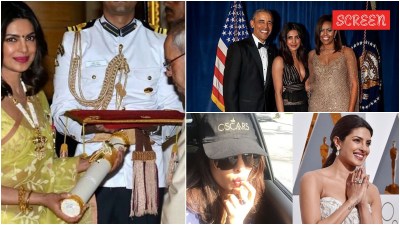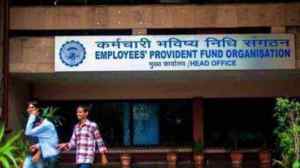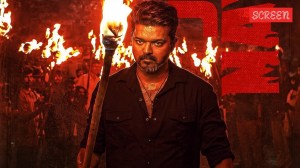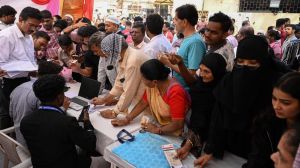CEC as Chief Election Censor
The sudden agitation of the Election Commission EC and the honourable Supreme Court regarding a couple of short TV advertisements on the p...

The sudden agitation of the Election Commission EC and the honourable Supreme Court regarding a couple of short TV advertisements on the political backgrounds of the leader of the main opposition party and the prime minister, is strange indeed. In a country where progressive liberals fiercely uphold the right to freedom of expression, where thousands of local language papers regularly put out preposterous stories about candidates, where the public takes everything with a pinch of salt and only as momentary entertainment, and where caricature and invective have been a part of the electoral discourse, these august bodies seem to have concerned themselves only when supposedly objectionable advertisements appear on TV.
A person has only to walk along the streets of Kolkata to see the most vivid and lurid drawings of Atal Bihari Vajpayee, Mamata Banerjee and others sucking the blood of the 8220;common man8221;. J. Jayalalithaa is portrayed as a strange creature out to ruin the lives of all government servants in Chennai. These are ghastly caricatures created by enthusiastic party workers encouraged by local leaders. No one has ever objected to them. There are persons in Chennai and Patna who regularly put up defamatory hoardings of persons they wish to malign. These are often highly defamatory. Nothing happens. The honourable judges would have done well to examine the condition of our existing laws on defamation and libel and ask whether they are not enough to deal with the situation 8212; and if they are not, then why should a different set of laws be in operation merely because it is election time? Why must those subjected to wrongful slander outside the election process have to go through interminable court proceedings while election candidates be provided remedies on the fast track?
It would not be disrespectful to suggest that the eminences in the EC and apex court do not allow themselves to be carried away by the righteous indignation of the Congress or BJP, who believe their leadership is being subjected to slander. Take the case of the prime minister. Rather late in the day, the Congress has produced a letter, supposedly written by a young Vajpayee, which makes him out to be an informer of the British. It has long been the position of the Congress that the RSS and its associates are in fact not nationalists at all. Then there is the inescapable political issue of whether a foreign-born should rule India. Both these accusations cannot be considered as 8220;shocking, revolting, disgusting, defamatory or slanderous8221;.
They are legitimate concerns that can be answered convincingly by the persons concerned from public platforms. Those making allegations should do so with facts and reasoned argument. It is quite irrelevant whether these accusations are made on TV, on walls or through pamphlets. Putting a lid on them stifles democratic debate and the right of the public to know their candidates. It is therefore quite amazing to see the EC and apex court, both constitutionally required to uphold democratic rights, going into such a tizzy to work in tandem toward stifling political advertising in the name of upholding democracy.
When Sonia Gandhi first entered politics, she began by calling Vajpayee a 8220;gaddar8221;, which means the same thing as what the Congress ad says now: a traitor. There was an outcry from the BJP and others then and Sonia Gandhi8217;s speech writers promptly crossed that word out. It passed without the EC having to write to the courts and courts having to ask the EC to formulate guidelines. No one has ever been obscene. If Narendra Modi called the opposition leader and her son unqualified to hold political office in rather disparaging language, his seniors have not condoned it. How come Laloo Prasad Yadav called George Fernandes a CIA agent in the 1996 campaign without complaints from any quarter? It neither harmed Fernandes nor has Laloo Yadav stopped his colourfully foul invective which everyone enjoys on TV?
The original job of the EC is to ensure that electoral rolls are accurate. There are serious complaints on this score. Has it ensured that everyone is allowed to vote fearlessly, especially in areas of violence? Has it taken note of candidates of various parties being forced to drop out of the race in Manipur by insurgents? When this writer once called upon the then CEC, J.M. Lyngdoh, with extortion letters received from militants, he sarcastically asked whether Manipur was a part of India and did nothing. The Supreme Court was not an available option. How are parties assured that mechanisms for the redressal of complaints are visible and active on polling day?
The issue of political ads is illusionary. There are more serious threats to the democratic process. The honourable courts could do with some examination of how long it takes to conclude hearings in an election petition and whether the law that requires the court not to interfere during the poll process needs to be altered for all issues, only some, or not at all.
Elections are about pulling in the crowds and spreading one8217;s message. It is very tricky for anybody, however august, to attempt to censor the content apart from the language. Self censorship and public ire are better methods. Officially censoring the content of political discourse will lead the country up very dangerous alleys. In a democracy, if the people are supreme and wise enough to decide what is best for them, it does not behove any institution to rush to the aid of parties that whine about criticism of their candidates, howsoever important they may be.
- 01
- 02
- 03
- 04
- 05































